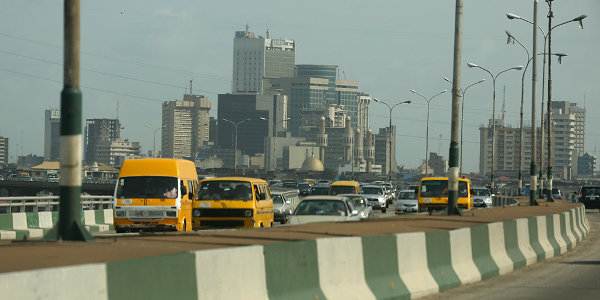The Nigerian Federal Government, over the past week, after recalling its envoy to Ghana over the closure of retail shops owned by Nigerians in the country, threatened to take Ghana to ECOWAS Court of Justice if found to have breached the sub-regions Protocol of Free Movement of Peoples.
According to Senator Enyinnaya Abaribe, the Minority Leader in Nigerian’s Parliament, Ghana was endorsing xenophobic attacks by the treatment meted out to nationals of other countries particularly Nigerians. “The authorities in that country need to prove us wrong by putting a halt to further closure of the shops and attacks on Nigerians in compliance to the Economic Community of West African Countries (ECOWAS) protocol”, he said.
The Senator said, although Ghana’s policy, which stipulates that retail trade is exclusively the preserve of Ghanaians, it was a “willful denigration of sub-regional brotherhood.”
“So, what’s the point of having an economic community if at the end of the day each country resolves to make laws and regulations that are in contradiction with the binding protocol. This is quite absurd as it negates the spirit that propelled the formation of ECOWAS in the first place,” he further added.
Conflict of the laws
Section 27 of the Ghana Investment Promotion Centre (GIPC) Act, Act 865 reserves retail trading solely to the prerogative of Ghanaians. However, this law conflicts with ECOWAS’s protocol relating to the free movement of persons and establishments. It stipulates the right of ECOWAS citizens to enter, reside, and establish economic activities in the territory of other member states.
With the ECOWAS protocol on trade in mind, the Ghana Union of Traders Association (GUTA) insists that foreign traders from other ECOWAS nations are only allowed to trade in goods that are manufactured in their respective countries. However, should they wish to trade in goods that are not allowed under this regulation such traders must satisfy GIPC’s conditions on retail trade in the country.
ALSO READ: Nigeria vows action over closure of Nigerian shops in Ghana
Following the conflict in the retail sector, the Government moved to set up an Inter-ministerial Task Force. On August 10, the task force moved to enforce compliance of foreigners engaged in retail business in the country. The exercise of the task force which is expected to end 3rd September 2020 will require foreigners engaged in retail trade to have business operating permits and all relevant documents required to operate in the country. Not having the relevant documents would mean an illegal business operation. Such culprits will thus, have their shops locked up but would be given the required time to acquire the right documents before continuing with business operations.
According to Chukwuemeka Nnaji, President of The Nigeria Union of Traders in Ghana (NUTAG), most Nigerian traders do not have the GIPC registration, which cost as much as $1million. He has thus asked its Federal Government to take necessary steps to end the plight of its citizens doing business in Ghana.
The Fear of Retaliation
Trade experts fear this action taking by Ghanaians may cause a ripple effect. There is the fear of Nigerians retaliating by also closing down shops belonging to Ghanaians in Nigeria. Moreover, there’s the fear of disruptions in the supply chain since the wholesale of many goods rests in the hands of mostly Nigerians under which Ghanaians and Nigerians are competing at the retail level. Should Nigerians decide to slowdown wholesale activities in protest, product shortages may arise.
Also, trade experts are worried over possible price hikes by Ghanaian traders as happened in the previous year where Ghanaians took advantage of the closure of Nigerian shops.
As the task force continues in its efforts and dialog continues, GUTA, NUTAG, and the respective Governments, hope to see an amicable resolution to the conflict to avoid a trade war or retaliatory actions.




